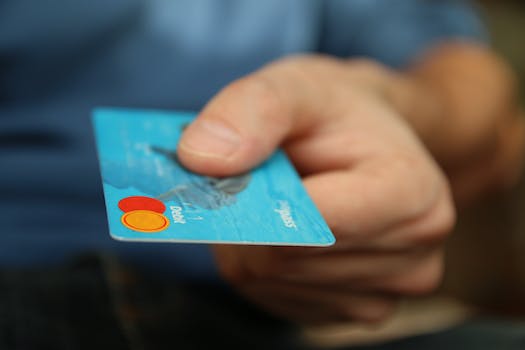How To Start A Food Business With No Money
“Turning your culinary passion into a profitable business, even on a shoestring budget.”
Introduction
Starting a food business can be a daunting task, especially if you have limited funds. However, with the right mindset and approach, it is possible to start a successful food business with little to no money. In this article, we will discuss some tips and strategies on how to start a food business with no money.
Utilizing Social Media to Promote Your Food Business
Starting a food business can be a daunting task, especially if you don’t have a lot of money to invest. However, with the rise of social media, it’s now easier than ever to promote your food business without breaking the bank. In this article, we’ll explore how you can utilize social media to promote your food business and attract customers.
First and foremost, it’s important to establish a strong online presence. This means creating social media accounts for your business on platforms such as Facebook, Instagram, and Twitter. Make sure to fill out your profile information completely and include high-quality photos of your food. This will help potential customers get a sense of what your business is all about and entice them to try your food.
Once you’ve established your social media accounts, it’s time to start promoting your business. One effective way to do this is by running social media contests. For example, you could ask your followers to share a photo of themselves enjoying your food and tag your business in the post. In exchange, you could offer a prize such as a free meal or a discount on their next purchase. This not only helps to promote your business, but it also encourages customer engagement and loyalty.
Another way to promote your food business on social media is by partnering with influencers. Influencers are individuals with a large following on social media who can help promote your business to their audience. Reach out to influencers in your area and offer them a free meal in exchange for a post about your business. This can help to increase your visibility and attract new customers.
In addition to running contests and partnering with influencers, it’s important to regularly post content on your social media accounts. This can include photos of your food, behind-the-scenes glimpses of your business, and updates on new menu items or promotions. By posting regularly, you’ll keep your followers engaged and interested in your business.
One thing to keep in mind when promoting your food business on social media is to be authentic. Don’t try to be something you’re not or post content that doesn’t accurately represent your business. Customers can tell when a business is being disingenuous, and it can hurt your reputation in the long run.
In conclusion, utilizing social media is a great way to promote your food business without spending a lot of money. By establishing a strong online presence, running contests, partnering with influencers, and posting regular content, you can attract new customers and build a loyal following. Just remember to be authentic and true to your brand, and you’ll be well on your way to success.
Partnering with Local Farmers for Affordable Ingredients

Starting a food business can be a daunting task, especially if you don’t have a lot of money to invest. However, there are ways to get started without breaking the bank. One of the best ways to save money when starting a food business is by partnering with local farmers for affordable ingredients.
Partnering with local farmers not only helps you save money, but it also supports your local community. By sourcing your ingredients locally, you are helping to keep small farms in business and promoting sustainable agriculture practices.
To get started, you’ll need to do some research to find local farmers in your area. You can start by checking out farmers’ markets, community-supported agriculture (CSA) programs, and local food co-ops. You can also reach out to local agricultural organizations or use online resources like LocalHarvest.org to find farmers in your area.
Once you’ve identified some potential partners, it’s important to establish a relationship with them. This means reaching out to them and introducing yourself, explaining your business and your interest in sourcing local ingredients. You may also want to visit their farm or attend one of their events to get a better sense of their operation and the quality of their products.
When it comes to pricing, it’s important to be transparent and fair. Farmers work hard to produce high-quality ingredients, and they deserve to be compensated fairly for their efforts. However, by working directly with farmers, you can often negotiate lower prices than you would pay for similar ingredients from a distributor or wholesaler.
Another benefit of partnering with local farmers is that you can often get access to unique or hard-to-find ingredients. Many small farmers specialize in niche crops or heritage varieties that you may not be able to find elsewhere. By incorporating these ingredients into your menu, you can set your business apart from the competition and offer your customers something truly special.
Of course, there are some challenges to sourcing ingredients from local farmers. For one thing, you may need to be more flexible with your menu and adjust it based on what’s in season and available. You’ll also need to be prepared to handle larger quantities of ingredients than you might be used to, as farmers often sell in bulk.
To make the most of your partnership with local farmers, it’s important to communicate clearly and regularly. Make sure you understand their production schedule and availability, and be sure to place your orders in advance to ensure you get the ingredients you need when you need them.
In conclusion, partnering with local farmers is a great way to start a food business with no money. By sourcing your ingredients locally, you can save money, support your local community, and offer your customers unique and high-quality ingredients. While there may be some challenges to working with local farmers, the benefits far outweigh the drawbacks. So if you’re looking to start a food business on a budget, consider reaching out to your local farmers and see what kind of partnership you can create.
Starting a Food Truck Business
Starting a food business can be a daunting task, especially if you have limited funds. However, with the right mindset and approach, it is possible to start a successful food truck business with little to no money. In this article, we will explore some tips and tricks to help you get started.
Firstly, it is important to have a clear idea of what type of food you want to sell. This will help you to determine your target market and create a menu that appeals to them. It is also important to research the competition in your area and see what types of food trucks are already operating. This will help you to identify any gaps in the market and find a unique selling point for your business.
Once you have a clear idea of your menu and target market, it is time to start thinking about the logistics of your food truck business. One of the biggest expenses when starting a food truck business is the cost of the truck itself. However, there are ways to get around this. You could consider renting a food truck or partnering with another business that already has a truck. Alternatively, you could start small with a food cart or trailer and work your way up to a full-sized truck as your business grows.
Another important consideration is the cost of equipment and supplies. It is important to shop around and find the best deals on equipment such as grills, fryers, and refrigerators. You could also consider buying used equipment to save money. When it comes to supplies such as food and packaging, it is important to buy in bulk to get the best prices.
Marketing is also an important aspect of starting a food truck business. Social media is a great way to promote your business for free. You could create a Facebook page or Instagram account to showcase your menu and post updates about your location and specials. You could also consider partnering with local businesses or events to get your name out there.
One of the biggest challenges when starting a food truck business is finding a location to park. It is important to research local laws and regulations to ensure that you are operating legally. You could also consider partnering with local businesses or events to secure a regular parking spot. Another option is to participate in food truck festivals or events, which can be a great way to get exposure and build a following.
Finally, it is important to have a solid business plan in place. This should include your menu, target market, marketing strategy, and financial projections. It is also important to have a contingency plan in case of unexpected expenses or setbacks.
In conclusion, starting a food truck business with no money is possible with the right mindset and approach. By researching your market, finding creative solutions to reduce costs, and leveraging social media and partnerships, you can create a successful food truck business. Remember to have a solid business plan in place and be prepared to work hard to make your dream a reality.
Hosting Pop-Up Events to Test Your Concept
Starting a food business can be a daunting task, especially if you don’t have a lot of money to invest. However, there are ways to test your concept and gain exposure without breaking the bank. One of the most effective ways to do this is by hosting pop-up events.
A pop-up event is a temporary event that can take place anywhere, from a street corner to a park. It’s a great way to test your concept and get feedback from potential customers. Here are some tips on how to host a successful pop-up event:
1. Choose the right location
The location of your pop-up event is crucial. You want to choose a place where there is a lot of foot traffic and where your target audience is likely to be. For example, if you’re selling vegan food, you might want to set up in a trendy neighborhood where there are a lot of health-conscious people.
2. Get the necessary permits
Before you can host a pop-up event, you need to make sure you have all the necessary permits. This will vary depending on where you live, so make sure to do your research. You don’t want to get shut down by the authorities on the day of your event.
3. Create a menu
Your menu is the heart of your pop-up event. It’s important to create a menu that is both delicious and affordable. You want to offer something that people can’t get anywhere else, but you also want to make sure it’s something that people will actually want to eat.
4. Promote your event
Promotion is key to the success of your pop-up event. You want to get the word out to as many people as possible. Use social media to promote your event and create flyers to hand out in the neighborhood. You can also reach out to local bloggers and food influencers to see if they would be interested in promoting your event.
5. Make it an experience
People don’t just come to pop-up events for the food. They come for the experience. Make sure to create a welcoming atmosphere and engage with your customers. Offer samples and ask for feedback. This will not only help you improve your concept, but it will also create a loyal customer base.
Hosting a pop-up event is a great way to test your concept and gain exposure without breaking the bank. It’s important to choose the right location, get the necessary permits, create a menu, promote your event, and make it an experience. With these tips, you’ll be on your way to starting a successful food business with no money.
Crowdfunding Your Food Business
Starting a food business can be a daunting task, especially if you don’t have the financial resources to get it off the ground. However, with the rise of crowdfunding platforms, it’s now possible to launch a food business with little to no money. In this article, we’ll explore how you can use crowdfunding to start your own food business.
Crowdfunding is a way of raising money from a large number of people, typically through an online platform. There are several crowdfunding platforms available, such as Kickstarter, Indiegogo, and GoFundMe. These platforms allow you to create a campaign for your food business and ask people to contribute money towards it.
Before you start your crowdfunding campaign, you need to have a clear idea of what your food business is all about. You should have a solid business plan that outlines your goals, target market, and marketing strategy. You should also have a prototype of your product or service, so that potential investors can see what they’re investing in.
Once you have your business plan and prototype in place, it’s time to create your crowdfunding campaign. Your campaign should be engaging and informative, with a clear call-to-action for people to contribute. You should include a video that showcases your product or service, as well as photos and a detailed description.
When setting your funding goal, be realistic about how much money you need to get your food business off the ground. You should also consider the fees charged by the crowdfunding platform, as well as any rewards or perks you’ll be offering to your investors.
To promote your crowdfunding campaign, you should use social media and other online marketing channels. You should also reach out to your personal and professional networks, as well as food bloggers and influencers, to help spread the word.
One of the benefits of crowdfunding is that it allows you to test the market for your food business before you invest a lot of money into it. If your campaign is successful, you’ll have a group of investors who are interested in your product or service. You can use this feedback to refine your business plan and make any necessary changes before launching your food business.
It’s important to note that crowdfunding is not a guaranteed way to raise money for your food business. Your campaign may not be successful, or you may not raise enough money to get your business off the ground. However, even if your campaign is not successful, you can still use the feedback and insights you gained to improve your business plan and try again in the future.
In conclusion, crowdfunding can be a great way to start a food business with little to no money. However, it requires careful planning and execution to be successful. By creating a solid business plan, prototype, and engaging crowdfunding campaign, you can attract investors and launch your food business. Remember to be realistic about your funding goals and to use social media and other marketing channels to promote your campaign. With hard work and determination, you can turn your food business dreams into a reality.
Conclusion
Starting a food business with no money can be challenging, but it is possible. It requires creativity, resourcefulness, and a willingness to work hard. Some key steps include identifying a niche market, developing a unique product or service, leveraging social media and other free marketing channels, and seeking out low-cost or free resources and support. With dedication and perseverance, it is possible to turn a passion for food into a successful business venture.





